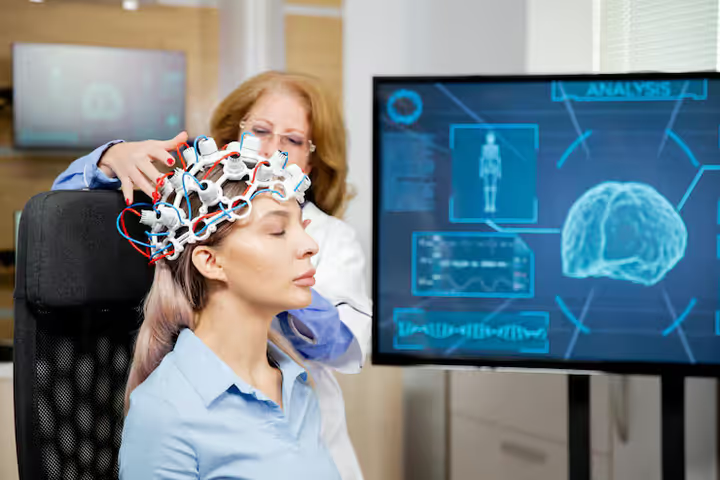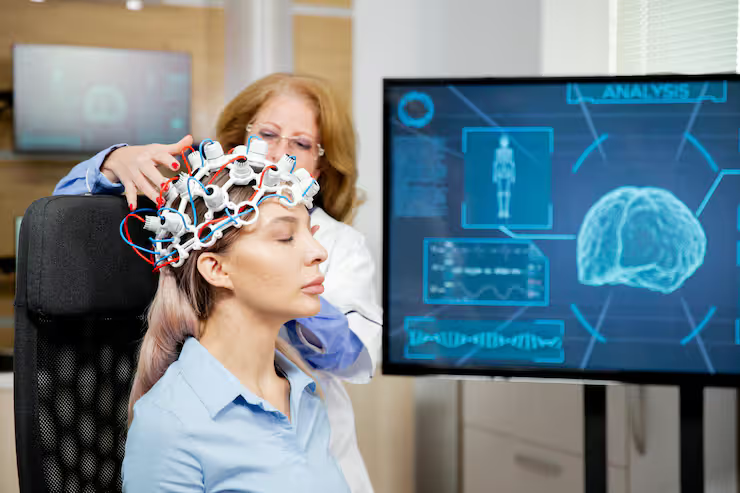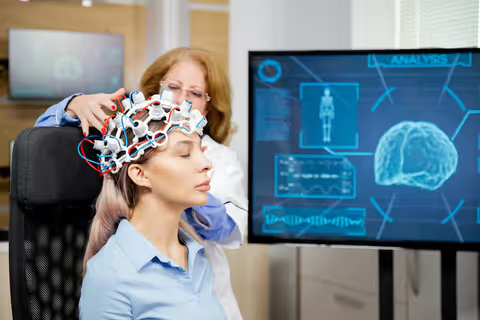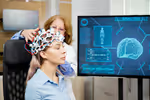
Brain Optimization Techniques A Complete Guide to Sharpening Focus and Memory
The human brain is a complex organ responsible for focus, memory, attention, and many other cognitive functions. “Brain optimization” refers to a range of practices, habits, and interventions aimed at improving those functions sharpening focus, enhancing memory, reducing mental fatigue, and improving cognitive efficiency.
This topic exists because modern life places increasing demands on cognitive performance. People juggle work, study, and multitasking while striving to maintain high mental performance. With growing awareness of brain health and advances in neuroscience, individuals and professionals are now exploring strategies to enhance mental sharpness and resilience.

Importance
The ability to concentrate, recall information, and stay mentally sharp is essential in every area of life. From students and professionals to older adults, cognitive performance plays a major role in success, productivity, and well-being.
Key reasons why brain optimization matters:
-
Reduces distractions: Helps combat mental fatigue and attention overload.
-
Improves learning and retention: Enhances academic and professional outcomes.
-
Supports mental health: Better focus and memory improve emotional balance.
-
Delays cognitive decline: Promotes long-term brain health and resilience.
-
Boosts performance: Improves efficiency in decision-making, planning, and creativity.
Brain optimization directly impacts how individuals adapt to new challenges, manage stress, and make decisions in fast-changing environments.
Recent Updates
Over the past year, significant progress has been made in understanding and improving brain performance.
-
Personalized cognitive training: Research shows that adaptive and targeted brain exercises yield stronger results than generic tasks.
-
Non-invasive brain stimulation: Methods such as transcranial direct current stimulation (tDCS) have been tested for enhancing attention and memory functions.
-
AI-powered cognitive tracking: Smart tools can now measure focus levels and suggest interventions for better productivity.
-
Integration of lifestyle and neuroscience: Combining exercise, mindfulness, nutrition, and sleep optimization is now seen as the most effective holistic approach.
-
Policy awareness: National and global initiatives are increasingly recognizing cognitive health as a public health priority.
| Trend | Key Insight |
|---|---|
| Adaptive brain training | Personalized mental exercises improve working memory and focus. |
| Lifestyle-based enhancement | Diet, sleep, and exercise show synergistic effects on cognition. |
| Digital well-being | Reducing screen fatigue helps preserve attention and memory. |
| Government focus on brain health | Cognitive wellness is now part of health strategy frameworks. |
Laws or Policies
In India, several mental and brain-health frameworks indirectly support the idea of cognitive optimization:
-
Mental Healthcare Act 2017: Ensures access to mental healthcare and emphasizes psychological well-being.
-
National Mental Health Programme (NMHP): Integrates mental health awareness and services into general healthcare systems.
-
Tele MANAS (2022): Offers mental-health support through digital platforms, promoting access to wellness and cognitive care.
-
National Task Force on Brain Health (2025): Aims to strengthen research and policy for neurological and cognitive health through a unified national model.
Although these policies focus more on mental health than direct “brain optimization,” they provide a supportive framework that values prevention, research, and education on cognitive well-being.
Tools and Resources
A variety of tools and digital resources are available for individuals who want to improve focus and memory.
Cognitive-Training Tools
-
Lumosity, Elevate, Peak, CogniFit: Interactive games designed to train attention, processing speed, and working memory.
Focus and Mindfulness Apps
-
Calm, Headspace, Insight Timer: Support relaxation, focus, and stress reduction through meditation and breathing exercises.
Sleep & Habit Trackers
-
Sleep Cycle, Habitica, Streaks: Improve sleep hygiene and encourage consistency in brain-boosting routines.
Educational Platforms
-
Coursera, edX, Khan Academy: Encourage lifelong learning, which strengthens cognitive flexibility and problem-solving.
Physical & Nutrition Tools
-
Fitness and meal-tracking apps: Encourage exercise, hydration, and nutrient-rich diets that nourish brain cells.
-
Blue-light filters and focus timers: Reduce screen strain and promote deep-work sessions.
| Category | Example Purpose |
|---|---|
| Cognitive training | Strengthen working memory and reasoning |
| Meditation & mindfulness | Enhance concentration and reduce stress |
| Sleep optimization | Improve memory consolidation |
| Physical fitness | Boost oxygen flow and neuroplasticity |
| Nutrition tracking | Support brain energy and focus |
FAQs
Q: Can memory and focus really be improved?
A: Yes. Although genetics influence cognitive ability, brain plasticity allows improvement through habits, mental training, and healthy routines. Consistent sleep, nutrition, exercise, and learning all contribute to better focus and retention.
Q: What is the most effective way to boost focus daily?
A: Practicing mindfulness, limiting digital distractions, and using the Pomodoro technique can strengthen attention. Combining these with proper hydration and rest ensures long-term results.
Q: How does sleep affect brain performance?
A: During deep sleep, short-term memories are converted into long-term storage. Inadequate sleep disrupts this process, leading to poor recall and difficulty concentrating.
Q: Do brain-training games work for everyone?
A: Their effectiveness varies. While these apps improve task-specific skills, combining them with physical exercise, learning, and rest offers better overall cognitive benefits.
Q: What foods help memory and concentration?
A: Foods rich in omega-3 fatty acids, antioxidants, and vitamins such as nuts, blueberries, green vegetables, and fish are known to support brain health and cognitive performance.
Conclusion
Brain optimization is not about instant improvement but about consistent enhancement through scientifically supported practices. Sharpening focus and memory requires a balance of cognitive training, physical activity, rest, and nutrition.
By integrating lifestyle changes, using the right tools, and understanding the value of mental resilience, anyone can build stronger cognitive foundations. In the modern era, optimizing brain function isn’t just a personal goal it’s an essential part of lifelong learning and overall well-being.






